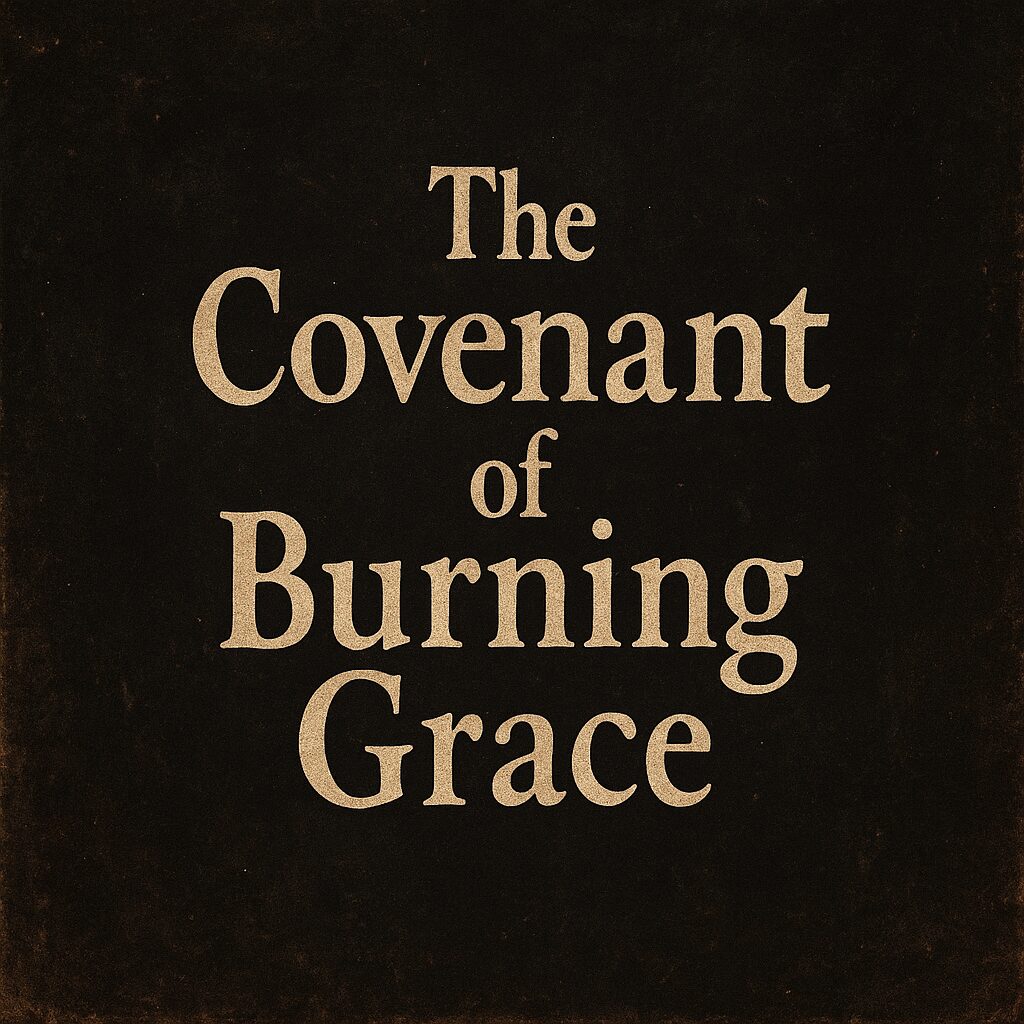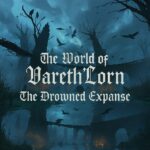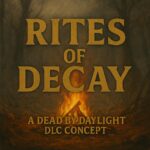
They kneel beneath the amber gloom,
Hands clasped like sinners facing doom.
No screams, just hymns that curl and wail,
A prayer set loose on a sulfur trail.
Their eyes are lanterns, lit from sin,
Each spark a secret kept within.
Faith made flesh, and flesh made flame,
They whisper God, but none the same.
The air grows thick with sacred smoke,
Each breath a promise that they choke.
A thousand tongues of holy fire,
Sing requiems for lost desire.
Oh blessed heat, oh cursed choir,
Your hearts are altars, your throats, a pyre.
The world forgets what you became,
But the ashes still recall your name.
And somewhere past the candle’s hiss,
Where dark and mercy meet and kiss,
A voice repeats, both sweet and dire:
“Not all who burn are damned by fire.”
Some poems are born from quiet places, moonlight, heartbreak, nostalgia. But The Covenant of Burning Grace came from something far older. It came from the echo of sermons in an empty church. From the ghosts that still hum hymns in the rafters. From that thin, shivering line between faith and fear… and how easy it is to mistake one for the other.
When I wrote it, I kept seeing a group of women, heads bowed, hands folded, not weeping, not screaming, but accepting. Flames rising from their brows like coronas of judgment and devotion. They weren’t victims. They weren’t saints either. They were witnesses to something ancient and divine and terrible.
That’s the heart of this poem, the duality of belief and damnation.
We live in a world obsessed with purity and punishment. Every era has its own kind of witch trials , maybe not with torches and gallows, but with headlines and hashtags. The poem asks:
What if the fire they feared wasn’t destruction at all?
What if it was revelation?
Because sometimes, the only way to cleanse is to burn. Not the body, but the illusion. The masks. The false gods we build and kneel before, whether they wear robes or screens.
🔥 The Fire Within
The flames in The Covenant of Burning Grace aren’t literal. They’re internal. They’re that spark inside you when you refuse to apologize for your truth. They’re the heat that comes with knowing too much, loving too fiercely, or standing too tall in a world that rewards smallness.
When I imagined these women burning, I didn’t see agony. I saw transformation. The fire wasn’t killing them, it was crowning them. Each flame was an act of rebellion against silence. A reclamation of power long buried under the weight of obedience.
And that’s what makes it unsettling. Because we’ve been taught to fear the burn, not to embrace it.
🕯️ Why I Wrote It (and Why It Wrote Me)
Stephen King once said that stories are fossils we dig up, not things we make.
This one felt like that.
It felt like I found it buried under centuries of dust and doctrine.
Like it was waiting, whispering, to be remembered.
Writing it, I felt the pulse of every woman who was ever called unnatural, dangerous, too much. Every artist who set their own spirit alight just to illuminate a little corner of truth.
The poem isn’t about witches.
It’s about us, about you.
The ones who keep creating in the dark, who dare to believe that pain can become art, and that faith doesn’t have to look holy to be real.
🔥 Final Thought
“Not all who burn are damned by fire.”
That’s the line that still haunts me. Because maybe, in the end, we all make a covenant, to burn for something that matters.
Whether it’s love, art, truth, or freedom…
The question isn’t if you’ll burn.
It’s what for.


